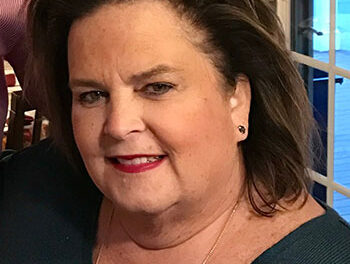By DAN TOMASELLO
LYNNFIELD — The School Committee is inching closer to approving a new cellphone and electronic device policy that will be implemented for the 2024-2025 academic year.
School Committee member Jenny Sheehan, who serves on the Policy Subcommittee, gave an overview of the latest version of the cellphone and electronic device policy during a July 23 meeting. The school board first began discussing it in late June.
Sheehan said the cellphone and electronic device policy for the elementary schools encourages students to “leave all personal electronic devices at home.”
“We strongly encourage parents to contact the main office if they have to get a message to their student,” said Sheehan while reading the proposed cellphone and electronic device policy. “Schools provide any necessary electronic devices needed for schoolwork such as Chromebooks. If a child does bring a cellphone, smartwatch or similar electronic device to school, it must remain off and in the student’s backpack. If a student does not responsibly follow these guidelines, the device will be held in the school office until a parent or guardian is able to pick it up.”
Sheehan said the policy for Lynnfield Middle School will prohibit students from using cellphones, smartwatches, headphones and other similar devices “within the school building during regular school hours, 7:20 a.m.–2 p.m., and should remain shut off and placed in lockers at all other times.”
“Non-authorized electronic devices can and will be confiscated by faculty, staff or administration, and held in the main office for the remainder of the day,” said Sheehan.
Sheehan said the policy for Lynnfield High School students seeks to prohibit cellphones, smartwatches and other devices from being used during class.
“Devices should remain shut off and placed in the student’s backpack or area designated by the teacher i.e. cell phone holders at all other times,” said Sheehan. “Students may not bring their device into the hallway during class periods. They are to remain in the classroom. Students may access their devices between class, during lunch and during study hall.”
Sheehan said the new cellphone and electronic device policy includes disciplinary measures for all four schools if a student violates it. If a student uses a cellphone or other electronic device to cheat on any test, quiz or assignment, she said the student will be facing “disciplinary action.”
Additionally, Sheehan said “the recording of video, picture-taking, and/or posting of such on the Internet is strictly forbidden at any time during the school day.”
In response to a question from Sheehan, School Committee member Jamie Hayman said prohibiting cellphones from study halls would not be practical because LHS coaches often text students about changes to practices and games during the school day.
“We are going to try something,” said Hayman about the cellphone and electronic device policy. “I think the biggest thing with the cellphone policy is it is something that will need to be reviewed every year. We have never done it before, so we don’t know how it is going to go and we don’t know what the blind spots are. Technology is evolving so fast, and what the issue is going to be five years from now hasn’t been invented yet. From a high school standpoint, I don’t think its practical to say let’s not have it in study halls. One of the things our kids need to learn in high school is how to manage their time. If a student has homework and they are choosing to spend time on their phone, the work doesn’t go away. Students have to ultimately get it done.”
School Committee Chair Kate DePrizio said she wants to hear feedback about the cellphone and electronic device policy after it gets implemented.
“We are very open to soliciting feedback from teachers and students throughout this year to see where it needs improvement and revision,” said DePrizio.
While School Committee Vice Chair Kristen Grieco Elworthy said she supports the cellphone rules for LHS students, she said it’s her hope that phones will be prohibited from the high school down the road.
“There is no good data on cellphones for kids,” said Elworthy. “I had a conversation with a high school teacher, and she said kids were getting up and going to a (cell phone holder) to get their phone in the middle of class. In a class of 20 kids, she thinks there are two or three who could sit through class without getting their phone. This is an addiction. It’s not the same as reminding kids to bring a calculator to class.”
Superintendent Tom Geary said the Policy Subcommittee and principals engaged in “many conversations” about the cellphone policy.
“The one area we kept coming back to is it has to be realistic,” said Geary. “It can’t be some pie in the sky hope that we are going to keep phones away from kids for a chunk of time because it is going to backfire. They will find a way to get them. In a perfect world, I fully agree with you. High School Principal Tricia Puglisi was very much in agreement that we have to be realistic for what these kids’ lives look like. It’s different from what we are used to. They are used to being with their phone. We have to crawl before we walk or run.”
Elworthy said Geary raised a “fair” point. She also said coaches shouldn’t be texting student-athletes during the school day.
Hayman said he discussed the cellphone and electronic device policy with Puglisi before the meeting.
“Tricia was adamant about the fact that we have to trust our students, but we also have to trust our teachers to have the classroom management skills to do what is right for them,” said Hayman.
School Committee member Jim Dillon, who also serves on the Policy Subcommittee, said Puglisi told him that prohibiting students from using cellphones in hallways “would be almost impossible for her to enforce.”
“The main idea is not having kids on their phone in class, and not paving attention to the teacher and what is going on,” said Dillon. “I think that is the goal here.”
The School Committee will be voting on the cellphone and electronic device policy on Wednesday, Aug. 7.




